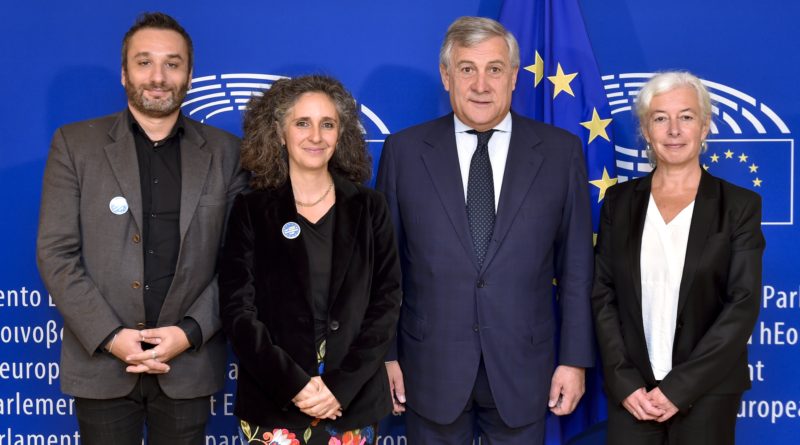“No sufficient progress” on people’s rights
This week the European parliament will vote a resolution that recommends to delay talks on a future trade agreement with the UK, as there hasn’t been “sufficient progress” yet on the terms of EU exit.
On the rights of EU citizens living in Britain and of British residents in the EU, the draft resolution says:
the withdrawal agreement must incorporate the full set of rights citizens currently enjoy, such that there is no material change in their position, and […] ensure reciprocity, equity, symmetry and non-discrimination for EU citizens in the United Kingdom and UK citizens in the European Union; […]
the withdrawal agreement should maintain the whole set of European Union rules on citizens’ rights as defined in relevant European Union legislation, but […] the United Kingdom’s proposals set out in its position paper of 26 June 2017 fall short in that respect.
The resolution was endorsed last Thursday by the conference of the presidents of the European parliament, which is made of political groups’ leaders.
Despite a welcome change of tone from the UK, they expressed concern about “regrettable administrative practices against EU citizens living in the United Kingdom”. The Guardian also reported that the European Commission is investigating the increased detention and deportation of EU citizens from the UK, with the intention to take action if necessary.
The draft resolution adds that progress is needed also on the border issue with Northern Ireland and on the settlement of accounts before the UK departure. Unless there is a major breakthrough by the European Council of 19-20 October (when the decision will be made), the EU should not proceed with talks on a post-Brexit trade agreement yet, concludes the motion.
The same message was passed to the British Prime Minister by the President of the EU Council Donald Tusk, during a meeting in London.
Today I’d say there is no “sufficient progress” yet. But cautiously optimistic about @Theresa_May constructive, more realistic #Brexit tone. pic.twitter.com/7qq3Xtq2dJ
— Donald Tusk (@eucopresident) September 26, 2017
Some progress in round 4
This week the EU and the UK delegations met in Brussels for the fourth round of Brexit talks. More details were agreed on the recognition of social security rights and professional qualifications of expatriates currently living on the two sides of the Channel.
Breaking from current rules on permanent residence, the UK offered to guarantee the right to return to EU citizens with permanent residence who leave the country for more than two years, e.g. for studies or work missions (at present permanent residence is lost after two years absence). In exchange, the UK asks that British citizens living in the EU continue benefiting of free movement across the EU27. The Commission will consult EU countries on the proposal, as the current proposal is to guarantee these rights only in the country where they reside.
The UK also committed to ensure “direct effect” of the withdrawal agreement into UK law, so that it will be directly enforceable in domestic courts. But disagreement remains on other sticky points, such as the ability for EU nationals to bring family members to the UK after Brexit (as they can do now) and the oversight of the final deal by the European Court of Justice.
Press conference of EU Chief Brexit negotiator Michel Barnier and UK Brexit Secretary David Davis, in Brussels.
Unprecedented appeals
In reaction to this week’s decisions, the Confederation of British Industry (CBI) and the Trades Union Congress (TUC) took the unusual step of issuing a joint declaration. They urged the British government and the EU to guarantee citizens’ rights and rule out the possibility that ‘no deal’ could cause continued uncertainty over their status.
“After 15 months of human poker, the uncertainty facing 4 million European and UK citizens has become intolerable. It is a blight on the values of our nations. Millions of workers and thousands of firms are today united in their call to leaders on both sides to find an urgent solution. A clear guarantee of the right to remain for citizens in both the UK and EU27 is needed within weeks,” said Frances O’Grady, General Secretary of the TUC, and Carolyn Fairbairn, Director-General of the CBI.
The Russell Group, which includes academic institutions such as the universities of Oxford and Cambridge, also urged a solution on people’s rights. Acting Director Dr Tim Bradshaw said: “This is not a game. Every round of talks that finishes without answers over citizens’ rights increases uncertainty. This is putting huge strain on families in the UK and across the EU.”
The next round of Brexit talks will start on 9 October.
Claudia Delpero © all rights reserved.
Photo: Representatives of the3million and British in Europe, two groups defending citizens’ rights in Brexit talks, meeting the President of the European Parliament Antonio Tajani in Brussels this week. © European Union 2017 – Source: EP.




